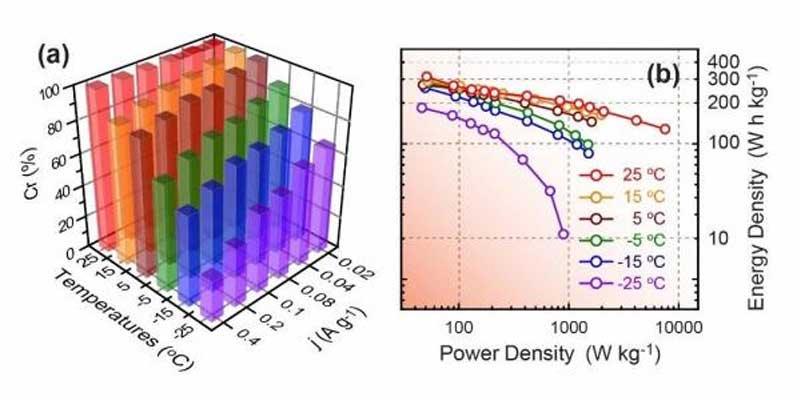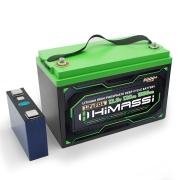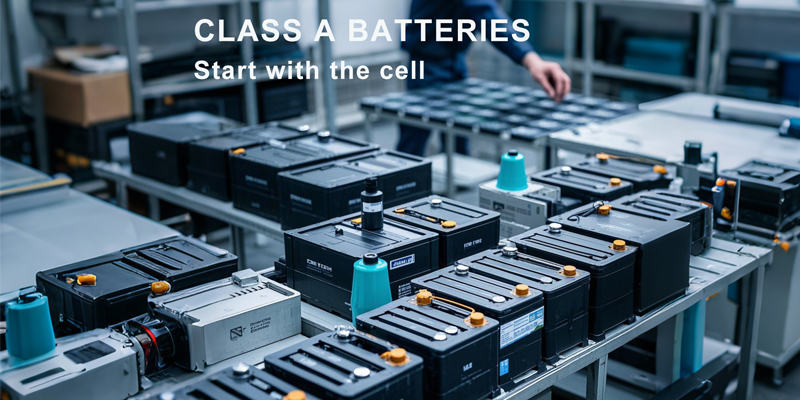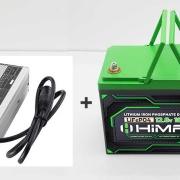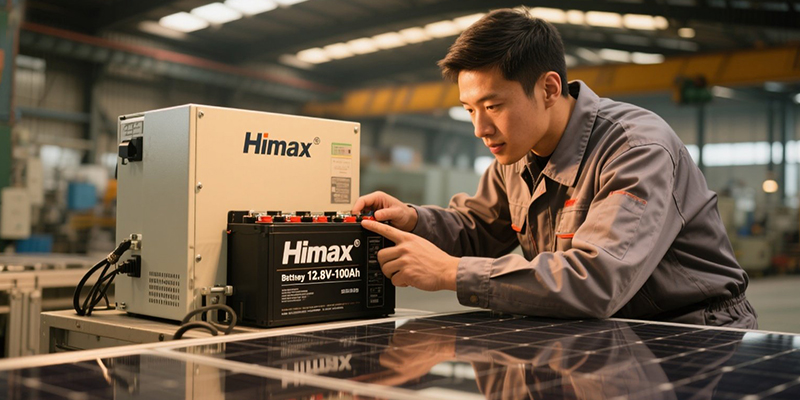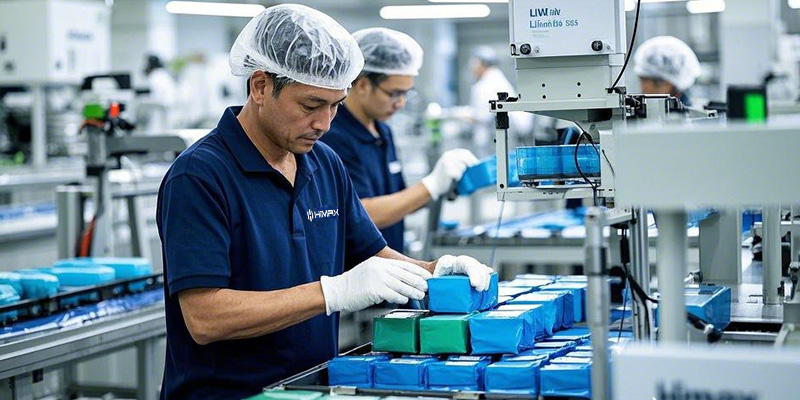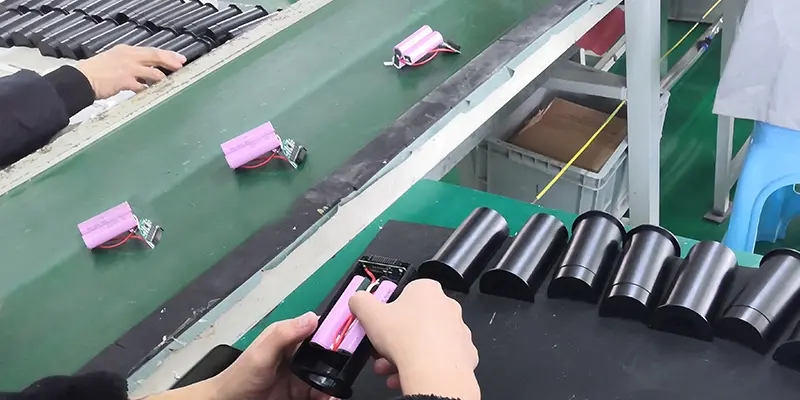How long do solar batteries last – 3 decisive factors
Introduction
Solar batteries, pivotal components of renewable energy systems, enable the storage of solar energy during peak sunlight hours for use during off-peak times or less sunny conditions. As the adoption of solar energy systems grows across residential, commercial, and industrial sectors, understanding the longevity and effectiveness of these energy storage solutions becomes increasingly critical. This comprehensive guide will explore the essential aspects of solar batteries, focusing on the variety of battery types available and the lifespan you can expect from each, helping users make informed decisions about their energy storage needs.
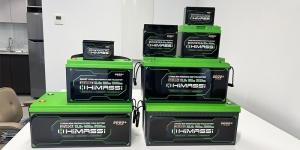
Types of Solar Batteries and Their Basic Lifespans
Solar energy storage technology encompasses a range of battery types, each with distinct characteristics tailored to different system requirements and budget considerations:
- Lead-Acid Batteries: A traditional choice in solar systems, lead-acid batteries are prized for their cost-effectiveness and reliable performance in a variety of settings. They typically offer a lifespan of 5 to 7 years, which can vary based on the maintenance regimen and usage patterns. Despite their affordability, they require regular maintenance, including water top-ups and terminal cleaning, to prevent degradation and extend their usable life.
- Lithium-Ion Batteries: These batteries are favored in modern solar installations due to their high efficiency, longer lifespan of up to 10-15 years, and minimal maintenance requirements. Lithium-ion batteries are more expensive initially but provide greater long-term value through their extended operational life and better energy density, which translates to smaller space requirements and less weight.
- LiFePO4 Batteries: Representing the pinnacle of lithium-ion technology, LiFePO4 (lithium iron phosphate) batteries offer enhanced safety and stability, which is crucial for high-capacity energy storage applications. They boast even longer lifespans, often exceeding 10-20 years under optimal conditions, and are particularly noted for their robustness against thermal runaway, a common safety concern with other lithium-based batteries.
These batteries cater to a diverse range of needs, from small residential systems requiring basic energy storage to large commercial projects that demand high efficiency and longevity.
Three Decisive Factors Affecting Solar Battery Lifespan
- Environmental Conditions and Usage
- Temperature Impact:The efficiency and lifespan of solar batteries are significantly influenced by ambient temperatures. High temperatures can accelerate the degradation of battery materials by increasing the rate of chemical reactions within the battery. This can lead to a shortened lifespan and reduced performance over time. Conversely, extremely low temperatures can decrease the chemical activity within the battery, resulting in lower energy output and slower charging rates, which may not adequately meet energy demands.
- Sunlight Exposure: The amount of sunlight a solar system receives directly affects the charging cycles of solar batteries. Consistent and adequate sunlight ensures that batteries are regularly charged to their full capacity, which is crucial for maintaining the health of the battery. Insufficient sunlight leads to partial charges, which can stress the battery and shorten its lifespan due to incomplete cycling.
- Charge and Discharge Management
- Depth of Discharge (DoD): The lifespan of a solar battery is also determined by how deeply it is discharged before being recharged. Batteries that are frequently discharged deeply (a high DoD) experience more significant wear and tear than those that are lightly discharged (a low DoD). Managing the depth of discharge can significantly extend a battery’s life by reducing the strain on its chemical components.
- Charging Strategies: Implementing the correct charging strategy is pivotal for battery longevity. Solar batteries thrive on a consistent charging routine that avoids overcharging and undercharging. Utilizing a charger that can regulate the charge according to the battery’s capacity and design specifications ensures that the battery maintains optimal health and efficiency throughout its lifecycle.
- Maintenance and Management
- Regular Maintenance: For lead-acid batteries, regular maintenance, such as checking water levels and cleaning terminals, can prevent corrosion and sulfation, both of which can severely impact battery performance and lifespan. Even maintenance-free batteries like lithium-ion benefit from occasional check-ups to ensure connections are secure and the housing remains intact.
- Battery Management Systems (BMS): Modern solar battery setups often include a sophisticated BMS that helps manage the load and optimizes the charging and discharging processes. A good BMS not only protects the battery from conditions that would prematurely end its life but also helps in achieving an evenly balanced charge across all cells, crucial for maintaining battery health and efficiency.
By understanding these factors and implementing best practices in battery usage and maintenance, solar system owners can significantly enhance the operational lifespan of their solar batteries, ensuring a reliable power supply and maximizing their investment in solar technology.
Optimizing Battery Life Through Selection and Maintenance
Selecting the right solar battery and maintaining it effectively are crucial steps in maximizing both its performance and longevity. Here’s how you can ensure that your solar battery system remains robust over its entire operational life:
- Selecting the Right Battery:
- System Requirements: Assess your system’s energy needs based on daily consumption and peak usage times. Choosing a battery with appropriate capacity and discharge capabilities ensures that it can handle the load without excessive wear.
- Compatibility: Ensure the battery is compatible with your solar panels and inverter. Mismatches can lead to inefficient charging and increased strain on the battery.
- Future-Proofing: Consider future expansion. Some battery systems offer easier scalability than others. Planning for potential system upgrades can save significant costs and hassle in the future.
- Proactive Maintenance:
- Scheduled Inspections: Regularly scheduled inspections can help catch and resolve issues before they lead to significant damage or failure. This includes checking for physical damage, ensuring connections are tight and corrosion-free, and verifying that the BMS is functioning correctly.
- Environmental Considerations: Store and operate batteries in temperature-controlled environments to minimize exposure to conditions that could accelerate degradation. If extreme temperatures are unavoidable, consider insulated enclosures to protect the battery.
- Charging Practices: Use smart chargers that adapt the charging rate to the battery’s state of charge and environmental conditions. This helps in extending the battery’s life by avoiding stress from overcharging or undercharging.
Conclusion
The key to extending the life of solar batteries lies in understanding the specific needs of your solar energy system and the operational characteristics of different battery types. By choosing the right type of battery, implementing strategic charge and discharge management practices, and maintaining the battery system proactively, you can significantly enhance the efficiency and lifespan of your solar batteries. Proper care and maintenance not only prolong the operational life of the batteries but also ensure that they perform optimally throughout their service life.

About Himax Electronics
At Himax Electronics, we are committed to providing high-quality, durable, and reliable battery solutions that meet the demands of diverse applications. Our expertise in advanced battery technologies ensures that our customers receive products designed for maximum performance and longevity. By choosing Himax Electronics, you benefit from our commitment to innovation and our focus on sustainable practices, ensuring that your investment in solar batteries(RV Solar Battery, Solar Battery for Home) maximizes your return and supports environmental sustainability. Explore our range of products and services to find the perfect solution for your energy storage needs.

